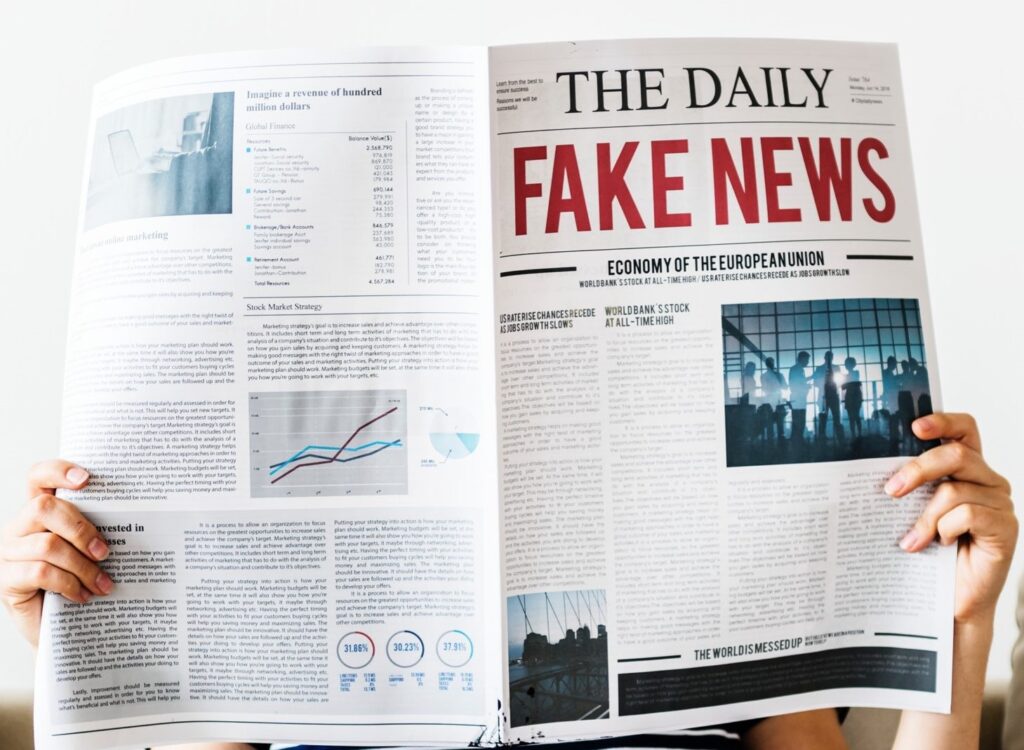Article
Your Internal Fake News

Your brain discriminates negatively since it’s doing its outdated and obsolete job of keeping you safe from physical danger. We must embrace that the default state of our brains is delusional. Your inner critic is a liar. It’s not your fault and doesn’t mean there is anything wrong with you or that you should have some sort of diagnosis. It’s our brains that are delusional, not us.
The natural state of the brain is spontaneous wondering, mostly speculating things that could go wrong or scanning for danger. Much of what the brain creates and enters our consciousness is not only negative but inaccurate. It’s not factual or based in reality; it’s fake.
Our brain deceives us. It’s convincing and presents things to us as if it’s truth, well-thought-out conclusions, and important news. It appears like it’s something that needs to be paid intention to, is urgent, and worthy of our attention. Look at the many news channels that have a banner on the screen: “breaking news.” Does the banner ever come down? How can everything be breaking news? The purpose of the banner is to get and keep our attention, so we stay on their channel.
Internet sites are judged by advertisers by the number of clicks they receive on their headlines. They create ‘click-bait’ headlines that are designed to either frighten us, enrage us, or pique our curiosity.
Our brains do the same thing and can be very convincing with the thoughts they present. Thoughts vie for our attention, as if they’re saying, “Think me, think me,” similar to the game Whac-A-Mole. Bad news sells because our brains, specifically our amygdala, are looking for something to fear. We can easily have anxiety that originates from thoughts in the brain’s cortex and freak out about things that aren’t even happening.
In 2016, just 32% of people in a Gallup poll said they thought the media reported the news “fully, accurately, and fairly.” That number in late 2018 had risen to 45%. “Fake news” has become ubiquitous in our culture- a frustrating phrase for some, but none the less ubiquitous. Just because an article appears online doesn’t mean it’s accurate; you’ve got to find the original source as misinformation is frequently re-cited and snowballs. You also must consider the source of the news and if that source is biased. We need resources like Snopes, a popular internet fact-checking site to identify urban legends, folklore, myths, rumors, and misinformation.
Here’s some breaking news: The garbage our brains report about us and our life is not a full, accurate, or fair picture! Internal, or self-created fake news is the worst kind of fake news. Because it’s personal, about yourself, it’s negative, and it’s repetitive. The news cycle in the media seems to last only a few days; the headlines quickly move on to something else to get our attention. Too bad our internal news cycle is so much longer. We usually inundate ourselves with the same negative headlines about the same topics. “My life is a disaster,” or “I’m such a loser” can be common headlines for some. It’s called rumination in the psychology field and it’s one of the most harmful things that sabotages our enjoyment and success in life. We need to be skeptical, dismiss it, and keep it off the front page of our awareness.
Put it on the back burner. Relegate it to the legal notice section.
- May 2024
- March 2024
- December 2023
- October 2023
- August 2023
- June 2023
- April 2023
- March 2023
- January 2023
- October 2022
- September 2022
- July 2022
- May 2022
- March 2022
- January 2022
- November 2021
- October 2021
- August 2021
- May 2021
- April 2021
- February 2021
- January 2021
- November 2020
- October 2020
- August 2020
- June 2020
- May 2020
- April 2020
- April 2018